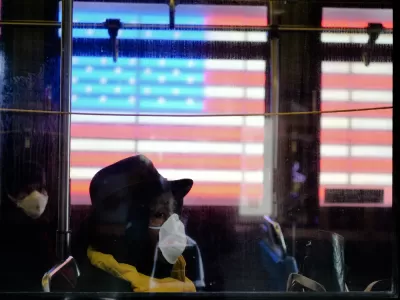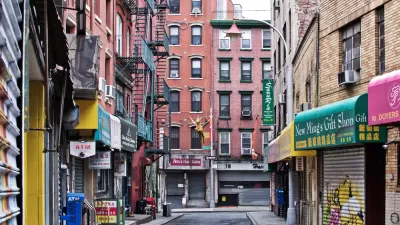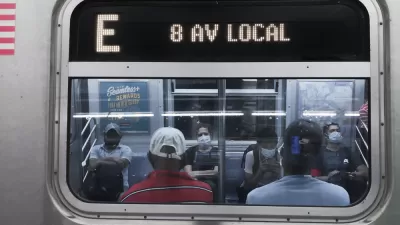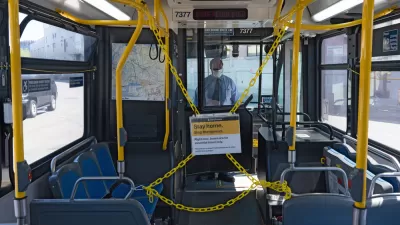The impact of coronavirus on unemployment and healthcare is predicted to affect black and Latinos at a disproportionate rate, raising questions about what can be done to ease the suffering and close the racial wealth divide in America.

Amidst dramatic spikes in unemployment and widespread loss of healthcare benefits, a result of the outbreak of the novel coronavirus, growing concerns mount over the severity of hardship experienced in communities of color.
“Government data shows the outbreak is more concentrated in major US metropolitan areas like New York City, New Orleans and the nation's southeast where greater percentages of black and Latino Americans live. In New York City, the virus is disproportionately affecting lower-income neighborhoods in Queens, Harlem and the Bronx, which have denser populations of immigrants of color, African Americans and Hispanics,” writes Chauncey Alcorn.
The impact in urban centers is echoed in the national labor market where those sectors taking the greatest financial hit disproportionately staff Black and Latino employees. Moreover, greater rates of underlying health conditions in Blacks, Latinos, and Native Americans compared to whites could mean an increased need for medical care, potentially resulting in medical debt and more difficult recovery.
To address the disproportionate impact of these financial and medical threats, the Senate-approved $2.2 trillion stimulus package is a start, but is not a sufficient remedy to the increasing racial wealth disparity, says the Institute for Policy Studies' "Inequality and the Common Good" program director, Chuck Collins. Providing financial support and helping Americans to avoid debt is the kind of intervention that could narrow the racial wealth gap, adds Collins.
FULL STORY: Why the coronavirus crisis will expand America's racial wealth gap

Alabama: Trump Terminates Settlements for Black Communities Harmed By Raw Sewage
Trump deemed the landmark civil rights agreement “illegal DEI and environmental justice policy.”

Study: Maui’s Plan to Convert Vacation Rentals to Long-Term Housing Could Cause Nearly $1 Billion Economic Loss
The plan would reduce visitor accommodation by 25% resulting in 1,900 jobs lost.

Planetizen Federal Action Tracker
A weekly monitor of how Trump’s orders and actions are impacting planners and planning in America.

Waymo Gets Permission to Map SF’s Market Street
If allowed to operate on the traffic-restricted street, Waymo’s autonomous taxis would have a leg up over ride-hailing competitors — and counter the city’s efforts to grow bike and pedestrian on the thoroughfare.

Parklet Symposium Highlights the Success of Shared Spaces
Parklets got a boost during the Covid-19 pandemic, when the concept was translated to outdoor dining programs that offered restaurants a lifeline during the shutdown.

Federal Homelessness Agency Places Entire Staff on Leave
The U.S. Interagency Council on Homelessness is the only federal agency dedicated to preventing and ending homelessness.
Urban Design for Planners 1: Software Tools
This six-course series explores essential urban design concepts using open source software and equips planners with the tools they need to participate fully in the urban design process.
Planning for Universal Design
Learn the tools for implementing Universal Design in planning regulations.
Caltrans
Smith Gee Studio
Institute for Housing and Urban Development Studies (IHS)
City of Grandview
Harvard GSD Executive Education
Toledo-Lucas County Plan Commissions
Salt Lake City
NYU Wagner Graduate School of Public Service





























